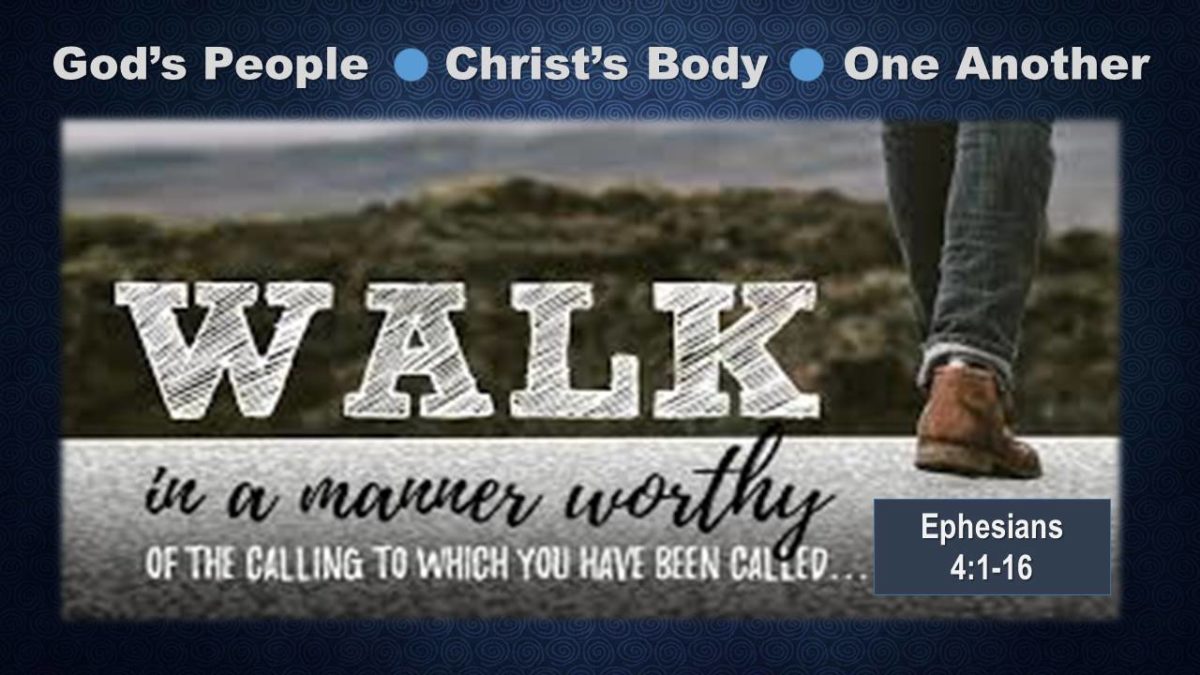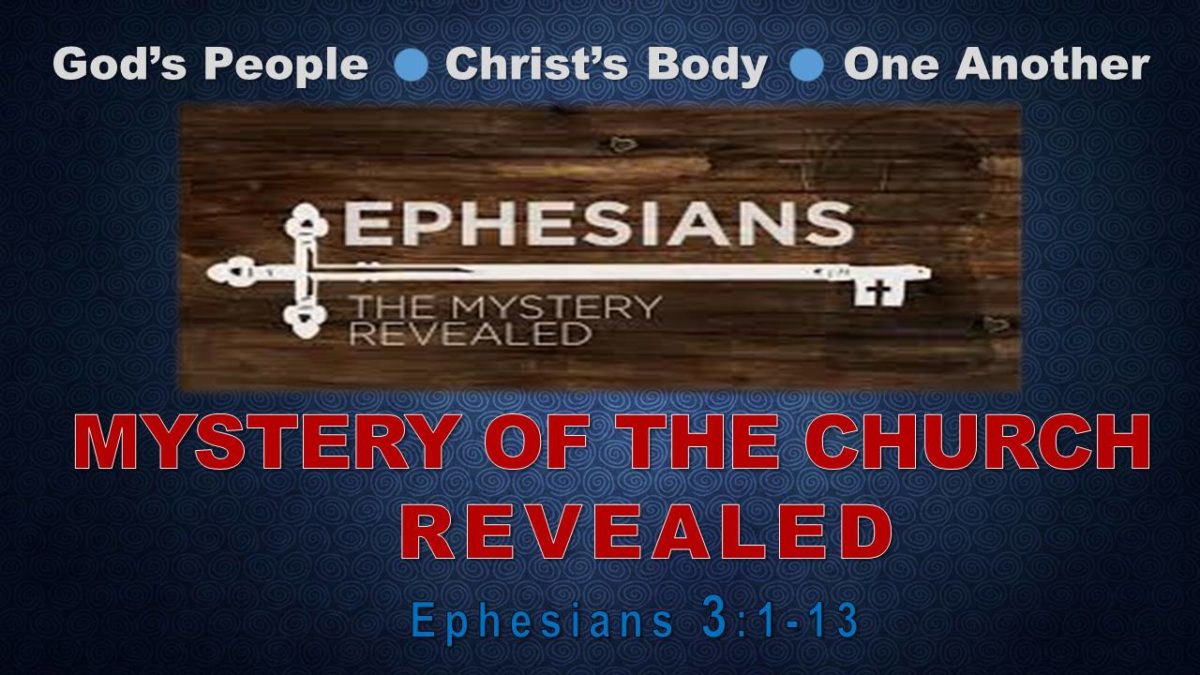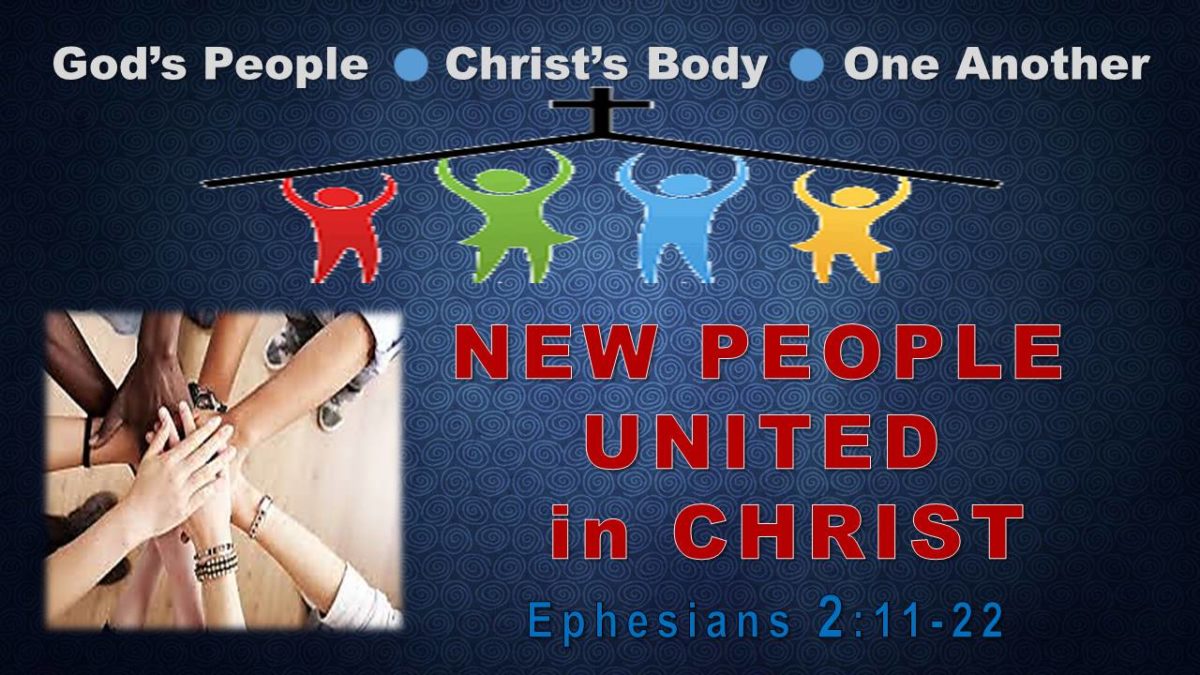Every teacher knows it: students don’t really understand a truth until they’ve applied it. Take teaching math, for example. Sure, it’s good to sit in a classroom and solve equations. But, real learning is proved when the homemaker adds fractions in the kitchen, the carpenter measures angles before cutting, or the pipe-fitter works his formula under the city streets.
Principles must be applied, and truth must be lived out.
That’s the way Ephesians works, as well. Paul has spent chapters 1-3 laying out some of the greatest doctrines of the Christian faith about the new people who are the Church of Jesus. Now, in chapters 4-6, he’ll teach us to “walk” in these truths.
But, how do we do this?
First, we must be united, in the Spirit (:1-6). We need to know what unity looks like. I … urge you in a manner worthy of the calling to which you’ve been called … (:1, ESV).
Our life together needs to reflect who we are as God’s called ones. “Worthy” has about it the idea of bringing equilibrium. Truth requires an equal-weighted emphasis on application. Great Christian truths will be answered by great, Christian living carried out with humility … gentleness … patience. Life together will, further, involve carrying one another along, … bearing with one another in love, eager to maintain the unity of the Spirit in the bond of peace (:3).
A major take-away here is that our unity exists because of the peace Christ has made for us. We don’t make peace in the church, we maintain (and, sometimes, restore) the peace that already exists.
This is dear to God’s heart as we see in verses 4-6, where, seven times, the word “one” appears: one body … one Spirit … one hope … one Lord … one faith … one baptism … one God and Father of all. Our unity as churches is based in the very essence and purpose of the Triune God. Deep stuff!
Second, we’re to be diverse, growing in Christ (:7-16). Curiously, almost all 21st century organizations are straining for diversity—from schools to corporations, to the Olympics, to whole countries. But, take notice! The Church of Jesus is the most diverse entity anywhere—and is becoming more so with each people-group embracing Christ.
One way God brings about this diversity is through the giving of gifts (:7-10), But grace was given to each one of us according to the measure of Christ’s gift … Important to recognize here is that everyone who has trusted Christ has received an enablement for the common good. These gifts are not the same, and they aren’t in equal measure. And, it doesn’t seem necessary to regard them as static either: God could gift extraordinarily at certain times for certain purposes … More deep stuff!
The gifts listed in verse 11 (apostles … prophets … evangelists … shepherds and teachers) are not all the gifts available, but are those foundational for the church. Also, they don’t describe office or jobs in the church. They describe the gifts God gives certain individuals for the building up of the church … to equip the saints for the work of ministry, for building up the body of Christ (:12).
When any church responds to God’s gifting through this diversity of gifts, that church will become mature (:13); it’s members won’t believe lies (:14); it’s people will grow up in Jesus (:15); and, the many will build one another up in love (:16). Unity will be maintained through its diversity.
So, how about your church? Or, how about Woodland, if you’re with us in the Northwoods? Are we walking worthy of our calling?
We are, if we’re united in dependence on the Spirit. And, we are, if we’re responding to one another’s giftedness, while growing in Christ.
Here’s a few questions to help your small group think about Ephesians 4.1-16:
Whom has God gifted in your local church?
How do you see God maintain the unity of your local church fellowship through the diversity of gifts? (How does God serve you through other people?)
How is it true that your gift is really not your gift at all, since it’s been given for the benefit of everybody else?
Read back through verses 12-16 and note the different results God brings about through the gifting of His people. What master illustration emerges, and how is this helpful?
What does this passage encourage you to do? How should you respond as you learn to walk together with others?



